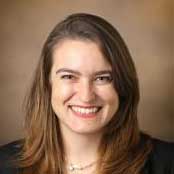Older adults with substance use disorder (SUD) often don’t fit into the standard treatment template due to factors such as multi-morbidities, complications of polypharmacy, or relocation to nursing homes and other settings.
Vanderbilt University Medical Center geriatrician and SUD expert Kimberly Beiting, M.D., is working alongside her colleagues to lower the barriers within this less-analyzed area of medical practice.
“Less than a third of the SUD treatment programs in the United States are designed to serve the needs of this aging population.”
This work includes a holistic care model that incorporates the M’s of age-friendly care: mentation, mobility, medications, multicomplexity, and what matters most to aging patients with SUD.
Recently a recipient of the Health Resources and Services Administration’s Geriatric Academic Career Award, Beiting will use it to develop curricula to train interdisciplinary staff and clinicians in the care of older adults with SUD.
“When you combine aging with the increasing use of psychoactive substances – whether recreational drugs or misused prescriptions – it adds up to a ballooning problem,” Beiting said. “Yet less than a third of the SUD treatment programs in the United States are designed to serve the needs of this aging population.”
Medical Maze in SUD
Complexities in providing SUD care for older adults abound, due in no small part to the moving target of federal and state regulations that surround care for this population, Beiting says.
“People providing or receiving care for opioid SUD navigate a lot of mandated, structured health care experiences,” she said. “Until the pandemic, if you were a patient in a methadone clinic, you were expected to come, potentially daily, to pick up your medicines.
“SAMSHA [the Substance Abuse and Mental Health Administration] and the Drug Enforcement Administration have loosened this somewhat, but the trips can still be onerous, particularly for older individuals.”
Beiting says that in buprenorphine-naloxone clinics, patients can start out coming weekly, but they often need more frequent medication adjustments, and care is more complex if they have psychiatric medications, as well.
Nursing Home Barriers
A further complication, according to Beiting’s research, is the fact that patients often cannot be prescribed methadone through in-home care – or even by staff in a nursing home.
“Older adults may be more likely to be on methadone because it has been around longer, and frequent transport from a nursing home to an OTP [opioid treatment program] means one less staff member on the floor. Though not legal, some nursing homes will reject patients on methadone to avoid that,” Beiting said.
As part of Beiting’s research in her geriatrics fellowship at the University of Chicago, a series of 24 interviews with nursing home administrators, physicians, and staff identified that a lack of staff preparedness, staff perceptions of addiction, and lack of resources were top factors resulting in inappropriate care for residents with SUD.
“Our results revealed a strong need for the development of consistent policies, as well as standardized, educational interventions for nursing home staff,” Beiting said.
Applying Age-Friendly Principles
Toward this end, Beiting and a group of geriatric and addiction medicine clinicians wrote an article in The Lancet Healthy Longevity in support of broad holistic care for these patients. The group also has presented workshops at the Association for Multidisciplinary Education and Research in Substance Use and Addiction on applying the five M’s of age-friendly care to SUD treatment.
“These five age-friendly care principles address the more obvious age-related barriers, like functional independence and mobility limitations, but also some less obvious ones, like dexterity and cognitive capacity to manage medications.”
Beiting is also developing a new care model to test Vanderbilt’s VISTA addiction treatment program.
“Older adults with SUD, particularly those with cognitive, mobility or transportation issues, may not go to a primary care doctor, yet they have broad medical concerns,” she said. “What if we embedded a primary care consultant within an addiction clinic to stabilize them, address their complex needs in a more streamlined way, and then link them with a community provider?”
She envisions that such a program would chip away at silos of care, scrutinize prescribing cascades that lead to polypharmacy, help identify and address cognitive impairment, and provide health care for older adults living with SUD and multimorbidity.
“These five age-friendly care principles address the more obvious age-related barriers, like functional independence and mobility limitations, but also some less obvious ones, like dexterity and cognitive capacity to manage medications,” Beiting said. “The need to treat co-occurring diagnoses that constitute the ‘M’ that represents multicomplexity is why I want to see if the embedded primary-care consultant concept works and gains traction.”
In 2022, the Centers for Medicare and Medicaid Services updated nursing home staff training requirements to include education on SUD care.
“We are developing curricula on policies, regulations, and the evidence-based care for individuals with SUD living in nursing homes,” Beiting said. “This provides an opportunity to offer robust, well-done education on SUD, the regulations, and the stigma around SUD.”





